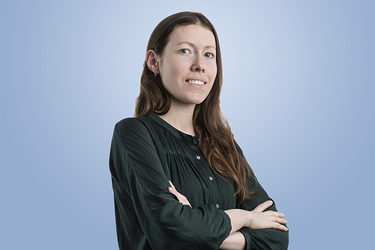In the context of our research at the Department of Psychology at UniDistance Suisse, we are looking for participants to take part in a variety of studies.
Study participants
Are you interested in participating in research?
We are interested in the following questions, for example:
- How does digitialization influence learning and memory processes?
- How does the increasing digitialization in our environment affect our brains?
- How do our emotions influence our diet?
- How do we regulate our emotions?
To find answers to these questions, we conduct studies either online or in our laboratories in Brig. We are always looking for people who would like to participate in our studies.
When you participate in our research studies, you will gain an insight into the core themes and methods of our current psychological research. You will also be helping us to advance our understanding of various research questions. Finally, you will also receive monetary compensation for this.
If you are interested, please register in our participant pool . After registering, you will receive invitations for new studies. There is no obligation to participate – you are of course free to do so and have always the possibility to opt out.
For in-person studies: our laboratories are located at Schinerstrasse 18, 3900 Brig.
The research laboratories of UniDistance Suisse
Virtual Reality Labor
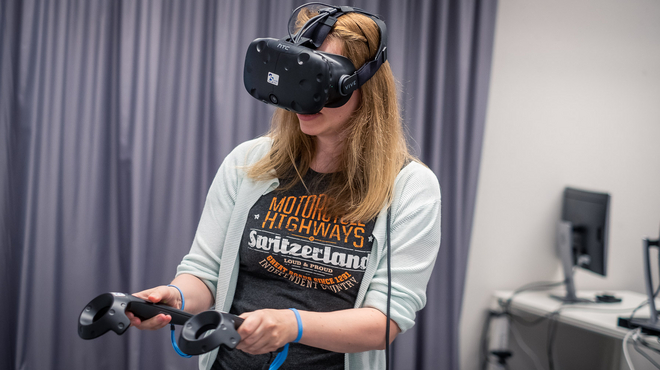
When testing using virtual reality, a type of goggles or headset showing a virtual world has to be worn. This makes it looks as though the wearer were directly in this virtual world.
This can be used, for example, to measure natural reactions of people with tasks which cannot be carried out in the real world.
We use this laboratory, for instance, to compare different technologies with regard to cooperation and learning performance.
Eye movement measurement laboratory
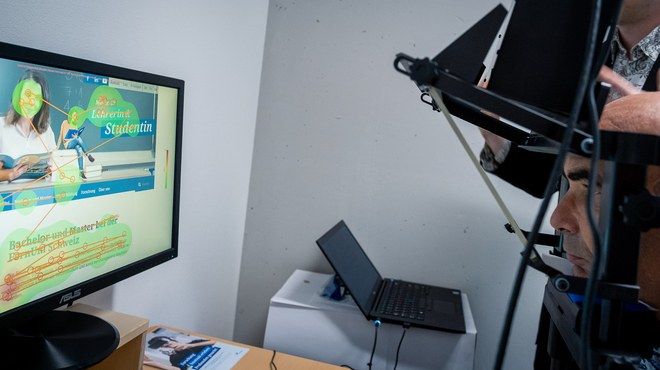
Eye movement measurement, also known as eye-tracking, is a technology that is used to see where a person is looking on the screen. With eye-tracking, we can see where a person is looking on the screen during a task and where they are directing their attention. This is helpful, for example, when presenting images or videos.
We use this lab, for instance, to understand the influence of tablets and e-learning tools on cognitive processing.
Electroencephalography (EEG)
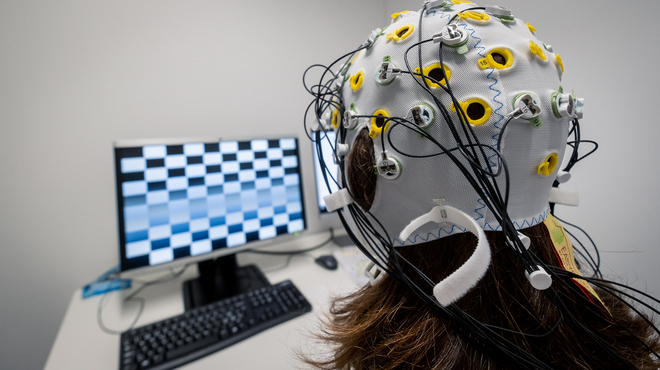
The brain continuously transmits electrical signals to communicate with the body. These signals can be measured using electroencephalography (EEG; a method for measuring brain activity), whereby a cap is worn to which several electrodes are connected. In this way, it is possible to see which areas of the brain are particularly active in various tasks.
Behaviour laboratory
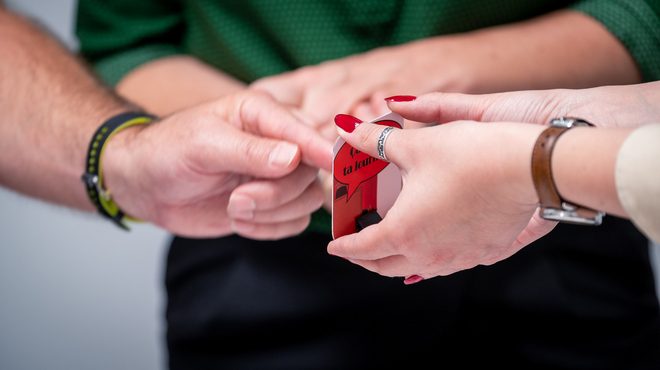
The behaviour laboratories are intended for a all kinds of studies which can only be conducted at a computer or at a table.
For example, we use this laboratory to understand the role of our emotions in diet or the effects of the permanent presence of smartphones on our cognitive capacity.
Useful information
The tests may look different depending on the study, but normally you will solve various tasks on a computer or complete questionnaires. In some tests, other information, such as eye movements or your brainwaves, are also measured at the same time while you are working on the task.
For laboratory studies you will receive CHF 25 per hour. You may receive payment for Internet studies. Whether this is the case and the level of payment is included in the description of the study in question.
There is no obligation to participate. Everyone can choose whether and in which studies they wish to take part. It is up to you how often you participate in studies. You can withdraw from taking part at any time without giving reasons and without incurring any disadvantages.
As soon as you have registered, you will be informed by e-mail of new studies in which you may take part. A personalised link takes you to a page on which you will see all studies for which you may apply. You can then click individually to register for any studies that interest you.
The tests may take place at different times and are dependent on the test manager. However, tests are generally held sometime between Monday and Friday and between 8 a.m. and 6 p.m. There may be exceptions to this. When registering for a study, you will see all the times on which the test manager may conduct tests and you can decide according to what suits you.
It usually takes about 30-60 minutes per test. Some tests may also take longer and/or be carried out over several days. All relevant information on the duration of a test are given in the titles and descriptions of the studies.
All data that you enter into our database and which we collect in the test are subject to data protection. This means that the data are not used outside our research and are also not made available to external parties.
The tests are carried out by psychologists and psychology students who are employed at UniDistance Suisse.
UniDistance Suisse laboratories are in Brig.

